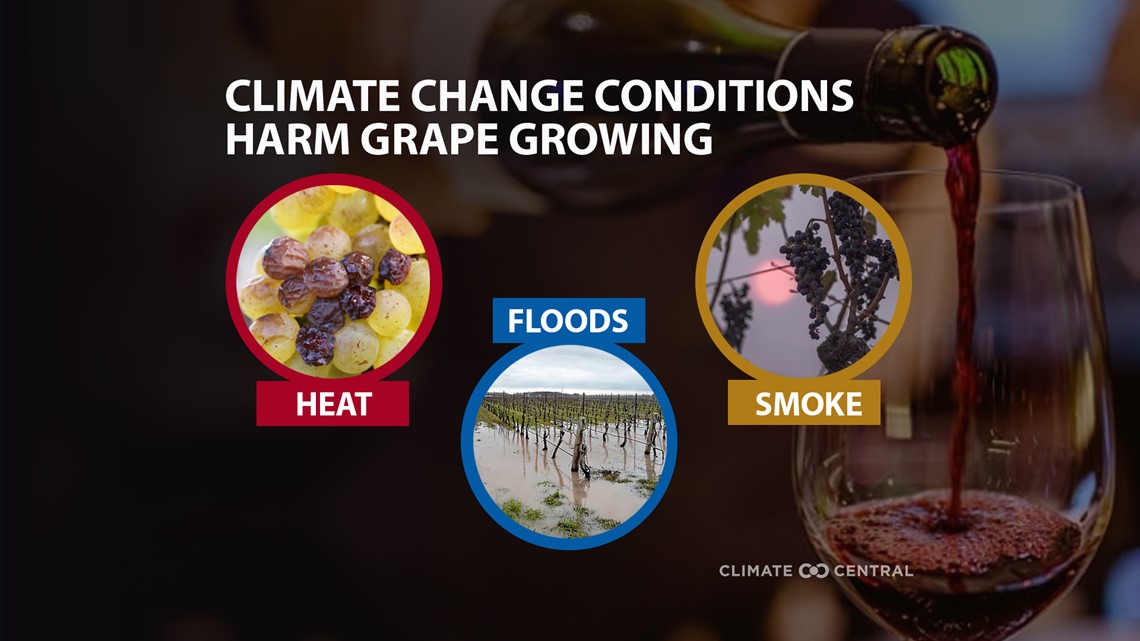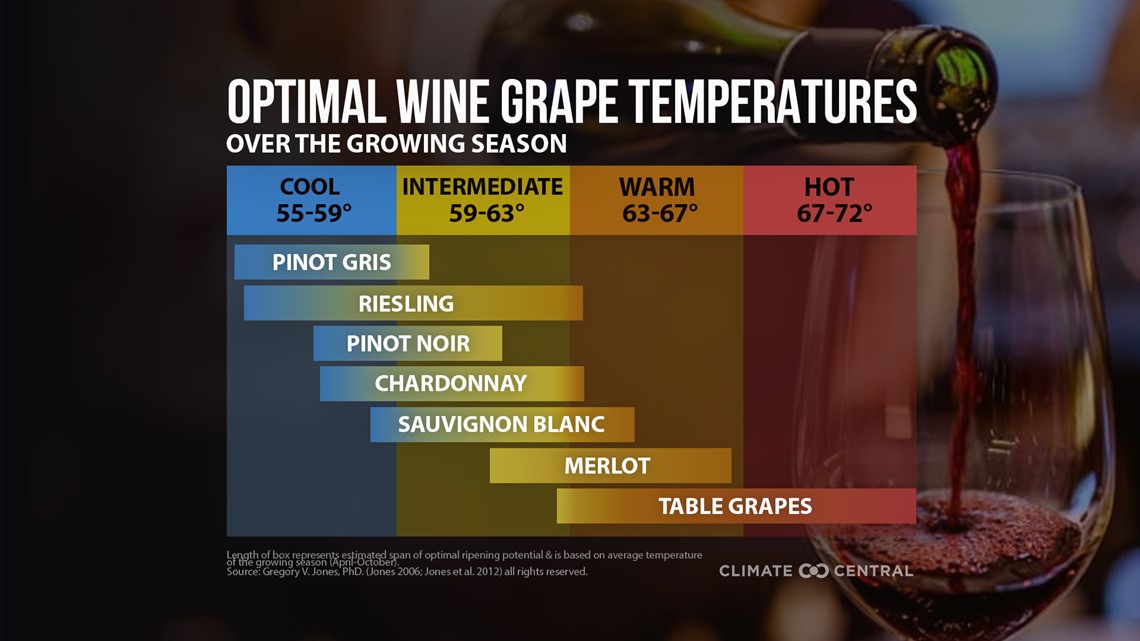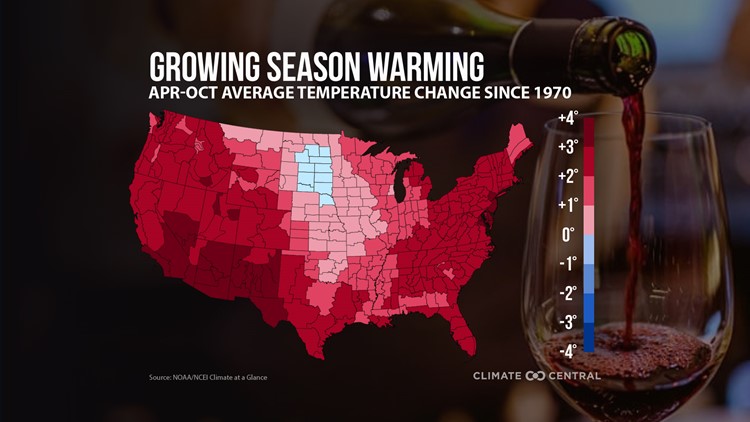GREENSBORO, N.C. — Wine grapes are very sensitive to changes in temperature and precipitation, so a changing climate due to global warming puts them at risk.
North Carolina is one of the top 10 wine-producing states in the country. Changes to our climate can impact our state's wine production. In the United States, the growing season stretches from April to October.
Specifically, growing season temperature has a direct impact on the quality of the grapes and the taste of the wine. Warm climate regions generally have a easing transition between the summer and fall which allows for grapes to ripen longer, but lowers the likelihood of their natural acidity. This helps to produce fruitier flavors with less acidity. However, cool wine climate regions have a more drastic change between seasons like summer and fall. This leads to greater acidity, but will take longer for the grapes to ripen.


According to Climate Central, the highest quality wines require warm temperatures, low risk of frost damage and no extreme heat. But, the average growing season temperature across the nation has increased roughly 2°F over the last 40 years. This long term warming trend means that vineyards producing high quality wines may need to grow a different type of grape. Another option for winemakers could be moving to a cooler growing climate, which would be either north or at higher elevation.


Climate change events like wildfires, extreme heat waves, heavy precipitation, spring frosts and droughts can also impact the wine production. With shorter and milder winters, the grapevine pests and insects have longer life spans which could threaten their growth.



